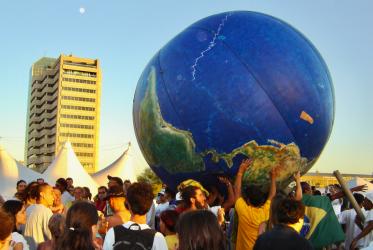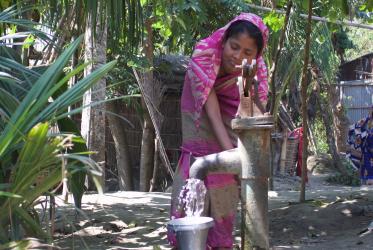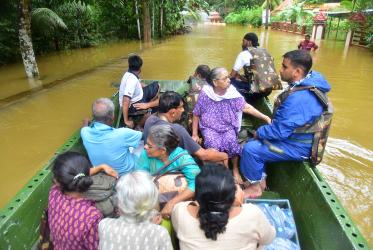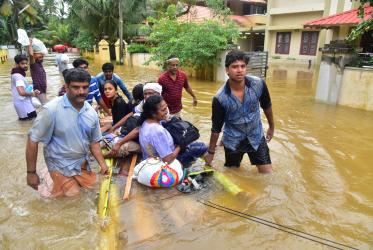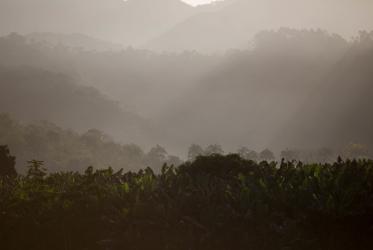Displaying 1 - 20 of 32
Churches should use their voice on climate change
26 February 2020
Eco-School promotes blue communities, green churches
19 November 2019
WCC Eco-School begins in Thailand
07 November 2019
“Economy of life” lifted up at special school in Indonesia
22 August 2019
Protect the Amazon, urges WCC statement
22 November 2017
G7 must address famine
22 May 2017
Plans for 2017 decided by WCC Executive Committee
01 December 2016
WCC Executive Committee issues statement on climate justice
25 November 2016
